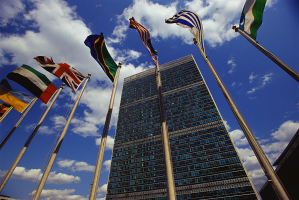ERLC urges DEA not to loosen restrictions on marijuana

The Ethics & Religious Liberty Commission of the Southern Baptist Convention has asked the Drug Enforcement Administration to continue identifying marijuana as a dangerous substance.
In public comments filed last week, the ERLC implored the DEA to retain marijuana’s classification as a schedule I substance under the Controlled Substance Act, expressing concern over a possible reclassification of the drug.
“The ERLC is deeply concerned about the rescheduling of marijuana as the use of marijuana generally harms public health and undermines a well-functioning society,” wrote ERLC President Brent Leatherwood in the public comment.
“It has been well documented that marijuana has substantial health hazards associated with usage. The National Institute on Drug Abuse2 has highlighted several adverse effects such as impairment in learning, memory and attention. Moreover, it has been associated with an increased heart rate and a higher risk of heart attack. The drug is also more addictive than is assumed, with an estimated 10% of users becoming addicted.”
Leatherwood noted that while reclassifying marijuana “from a Schedule I to a Schedule III status retains the illegal nature of this drug,” it also “removes the emphasis on the addictive nature.”
“However, marijuana remains a highly addictive substance, and the FDA has never approved a marketing application for marijuana for the treatment of any disease or condition,” he continued.
“For the sake of our most vulnerable neighbors, we must continue to educate the American public that marijuana use is dangerous, destructive and addictive. Anything short of a Schedule I categorization for marijuana is a failure in the government’s duty to protect its citizens.”
In May, the U.S. Department of Justice issued a proposed rule to reclassify marijuana from a schedule I to schedule III substance, thus loosening restrictions on the drug.
At present, 38 states, the District of Columbia and four federal territories have legalized the use of medical marijuana, while 24 states allow for recreational use.
Biden administration Attorney General Merrick Garland wrote in the proposed rule that the U.S. Department of Health and Human Services “concluded that the public-health risks posed by marijuana are lower compared to those posed by other drugs of abuse.”
“HHS thus concluded that although abuse of marijuana produces clear evidence of a risk to public health, that risk is relatively lower than that posed by most other comparator drugs,” wrote Garland.
“[W]hen comparing marijuana to heroin, oxycodone, hydrocodone, fentanyl, cocaine, ketamine, benzodiazepines, zolpidem, tramadol, and alcohol in various epidemiological databases that allow for some or all of these comparisons, marijuana is not typically among the substances producing the most frequent incidence of adverse outcomes or severity of substance use disorder.”
Marijuana was classified as a schedule I substance in 1970. A previous effort to reclassify marijuana in 2016 failed.
In October 2022, President Joe Biden issued a pardon for thousands of Americans who had been convicted for the "simple possession of marijuana."





























